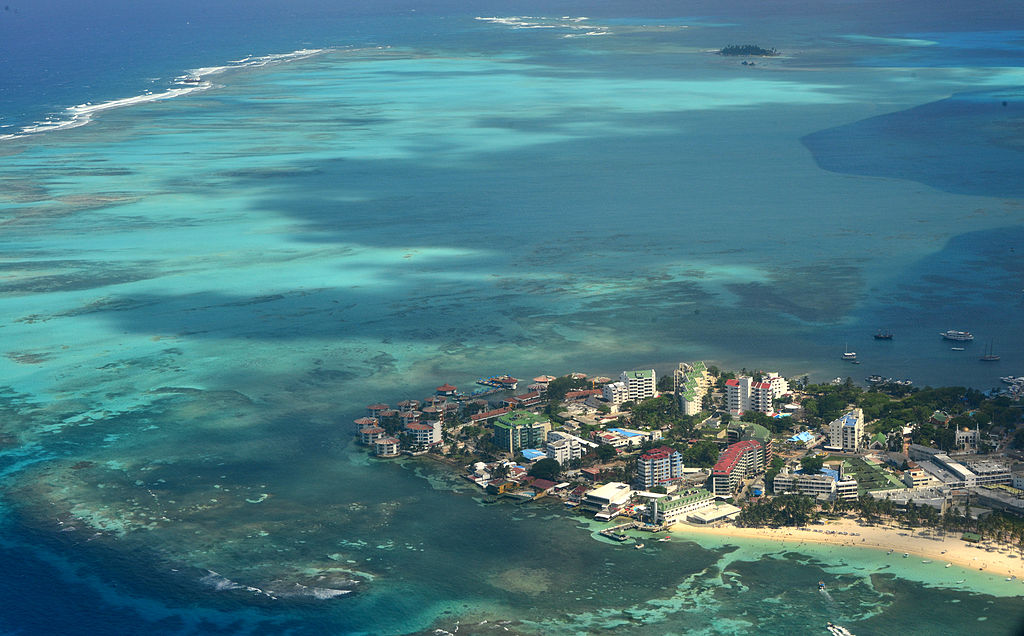Ortega demands that Colombia abide by The Hague ruling 1:41
(CNN Spanish) --
A diplomatic dispute that does not seem to come to an end will have a new chapter this week at the International Court of Justice in The Hague, when Colombia and Nicaragua reach an oral hearing for the case on the delimitation of the platform continental in a dispute that dates back years.
This week, between December 5 and 9, the International Court of Justice called oral hearings "on the legal part" of the case.
These hearings are expected to address "the points that still separate the parties" regarding the delimitation of the continental shelf on which the countries have not yet agreed.
On this occasion, Nicaragua insists that the Court must delimit an extended continental shelf that goes beyond 200 nautical miles, as the Court ruled in 2012. For this new round of hearings, the court has asked Colombia and Nicaragua to present the points on which agreements have not yet been reached, without repeating arguments already invoked, and thus resolve the issue of maritime delimitation.
Colombia does not agree with a new delimitation of the maritime border, and has said that the Court "has nothing to delimit," according to Carolina Olarte, Colombia's co-agent before the International Court of Justice, in a statement on Sunday.
"Colombia has a host of very solid arguments from a legal perspective, from an institutional perspective and from a scientific perspective that largely contain that Nicaraguan claim," Olarte said.
advertising
The disputed territories between Colombia and Nicaragua
This dispute centers on the sovereignty of the archipelago of San Andrés, Providencia and Santa Catalina, a territory that is currently Colombian, but has been claimed by Nicaragua.
The archipelago is located about 800 kilometers from the northwest coast of Colombia and 240 kilometers from the Nicaraguan coast.
In addition to the sovereignty of these islands and several cays, the dispute between Colombia and Nicaragua includes an area of 50,000 kilometers of fishing waters, according to the Court.
The disputed maritime zone is recognized as rich and extensive for fishing, as well as for the exploration and probable exploitation of oil and other hydrocarbons.
In 2012, the Court issued a ruling marking the new maritime boundaries between Colombia and Nicaragua.
That year The Hague granted Nicaragua 80,000 km in the Caribbean Sea, and after that Colombia said it would not recognize this ruling.
Since then, Nicaragua has asked the International Court of Justice in The Hague to intervene and force Colombia to abide by the 2012 ruling, and also to extend the continental shelf by more than 200 nautical miles.
"Nicaragua requested the Court to determine the 'single maritime frontier' between the areas of the continental shelf and the exclusive economic zones corresponding to Nicaragua and Colombia, respectively, in the form of a median line between the continental coasts of the two States", the court said in the 2012 ruling.
File photo. Aerial view of the island of San Andres, Colombia. The Hague previously ruled that a group of small islands belonged to Colombia, but expanded the disputed maritime boundaries in favor of Nicaragua. In the new case, Nicaragua asked the court to rule on the exact limit. (Credit: LUIS ACOSTA/AFP via Getty Images)
The Court granted Nicaragua the right to draw a new line on the platform with which it granted a 200-nautical-mile maritime platform to the Central American country, but Colombia did not accept the ruling, saying that the Court "incurred in "serious errors" when drawing a new maritime delimitation between this country and Nicaragua.
In April 2022, The Hague determined that Colombia violated "the sovereign rights and jurisdiction of Nicaragua" in the exclusive economic zone of Nicaragua, in the maritime area in question. This decision responded to a lawsuit that Nicaragua filed in 2013 in the that the Central American country affirmed that the Colombian Navy carried out operations in said exclusive zone, which had already been demarcated by The Hague.
Colombia assured that it had the right to these operations as part of its fight against drug trafficking and organized crime, in order to protect the residents of the San Andrés and Providencia Archipelago, as well as the biosphere, according to United Nations information.
In addition, the South American country said that Nicaragua violated "the artisanal fishing rights of the inhabitants of the San Andrés and Providencia archipelago to exploit their fishing banks, and that it unilaterally awarded itself maritime areas to the detriment of Colombia," says a statement from the ICJ.
Under these arguments, Colombia countersued Nicaragua twice, but the Court ruled in favor of the latter country.
So in that chapter that was ruled in April of this year, the Court of The Hague said that Colombia "violated the sovereign rights and jurisdiction of Nicaragua" in the exclusive economic zone and claimed the maritime area that belongs to Nicaragua as stipulated in the 2012 ruling.
The ICJ asked Colombia to "immediately cease its maritime research and fishing activities, as well as its patrolling activities," saying that the "integral contiguous zone" established by Colombia in 2013 "does not conform to customary international law."
According to the Court, "by interfering with the scientific marine and fisheries research activities of Nicaraguan-flagged or Nicaraguan-licensed vessels and with the operations of Nicaraguan naval vessels in the exclusive economic zone of the Republic of Nicaragua and by attempting to enforce conservation measures in that area, the Republic of Colombia has violated the sovereign rights and jurisdiction of the Republic of Nicaragua in this maritime area," he said.
It is not expected that this week there will be any opinion from the International Court of Justice on this case, according to the Colombian Foreign Ministry.

